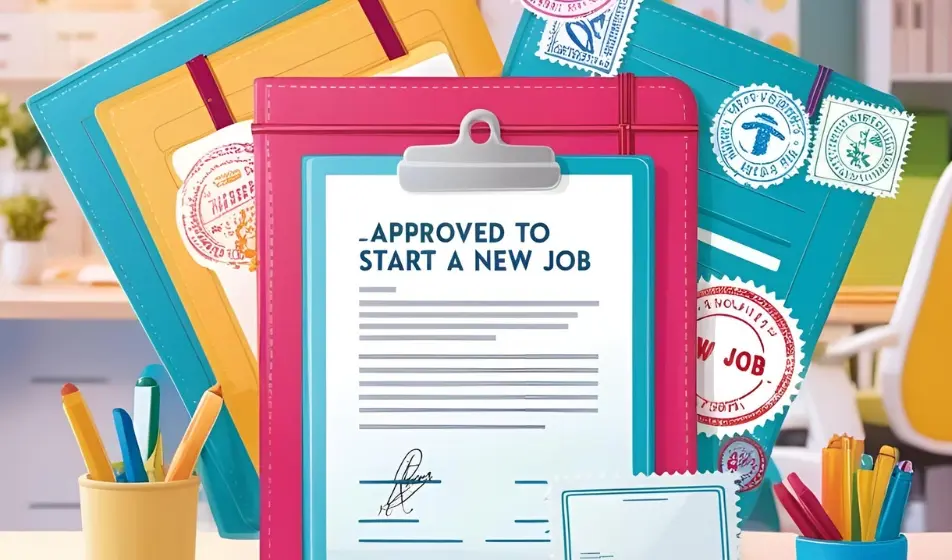Withdrawing an offer of employment is a task nobody wants to be faced with – especially when you thought you'd found the perfect candidate.
But every so often, new information arises that means you have to rethink the decisions you've already made.
In these situations, it's important that you know how to address this issue in the least damaging way possible.
In this blog, we explain everything you need to know about withdrawing an offer of employment.
Skip to:
Understanding the legal risks of job offers
Can you withdraw an offer of employment?
Can an unconditional job offer be withdrawn?
Examples of job offer withdrawal cases
Why might you have to withdraw a job offer?
How to withdraw an accepted job offer
Withdrawing an offer of employment - letter template
How to withdraw an unconditional job offer once it's accepted
Example withdrawal of employment offer follow-up letter
What if a candidate changes their mind?
Actions candidates can take if an offer is withdrawn
Understanding the legal risks of job offers
Before you withdraw a job offer, it's important to first understand the legal difference between a conditional and an unconditional job offer.
Conditional job offers are made with specific requirements attached—like references, background checks or right-to-work documentation. If the candidate doesn’t meet these conditions, you’re generally within your rights to withdraw the offer.
Unconditional job offers, on the other hand, are legally binding as soon as the candidate accepts. That means if you change your mind afterwards, you could face legal consequences—such as breach of contract.
To protect your business and stay on the right side of employment law, make sure your offer letters clearly state any conditions. It’s also a good idea to wait for those conditions to be met before confirming a start date.
When in doubt, a quick conversation with an HR professional or legal advisor can help ensure your hiring process stays compliant and fair—for everyone involved.
Can you withdraw an offer of employment?
Up until the job offer is accepted by the candidate, the employment offer can be withdrawn at any time. If the offer was conditional, you can also rescind a job offer at any time if it’s found that the conditions set out in the offer haven't been met.
These conditions can include:
-
Failing to hold or provide qualifications specific to that job role
-
Not being able to provide satisfactory references
-
Being unable to pass background checks
However, if a job is offered unconditionally and the candidate accepts, it becomes a much trickier task.
Can an unconditional job offer be withdrawn?
It is possible to withdraw a job offer after the employee has accepted. But if done incorrectly, you run the risk of being sued for breach of contract.
This is because, technically, the candidate's employment starts at the point of acceptance, meaning the accepted job offer constitutes a legally binding contract.
Therefore, new starters in these situations have the same rights as an employee. This applies even if an individual has not started their first day of work or received their contract.
Read more: Employment contract guide & HR templates
It's also important to remember that this is the case for a verbal job offer and acceptance, as it is considered just as valid as a written job offer.
To avoid any legal issues, it helps to treat the withdrawal of an unconditional job offer in the same way you might treat ending someone's employment, as this is technically what is happening.
This means serving any relevant notice appropriate to the company policy and the relevant new starter's contract. This notice period will generally be quite short in this situation, since the employee won't have passed probation yet.
When withdrawing an offer of employment, it's also essential to avoid discrimination. When choosing to withdraw the offer, ask yourself if any of the following have influenced your decision:
-
Age
-
Gender
-
Relationship status
-
Pregnancy and maternity
-
Race
-
Belief
-
Sexual orientation
If any of these factors have affected your decision, you should reconsider immediately, since these are grounds for successful legal action at an employment tribunal.
Examples of job offer withdrawal cases
-
Snozone Ltd / McCann decision: A candidate accepted a verbal job offer via an agency, and the employer withdrew it. The Employment Tribunal found in the candidate’s favour, ruling that a verbal offer and acceptance formed a valid contract. The employer was ordered to pay notice—and damages— of over £3,000 (the amount the candidate would have earned during that period).
-
Birtenshaw v Oldfield: The Employment Appeal Tribunal found that withdrawing a job offer after receiving a negative medical report amounted to discrimination, breaching the Equality Act. The claimant was successful—even with no prior service—because protected characteristics cannot lawfully justify offer withdrawal.
Why might you have to withdraw a job offer?
It takes plenty of time and effort to find the right candidate in today's competitive job market.
The last thing you want is to waste all the time and effort. But sometimes, the situation is untenable and difficult decisions have to be made.
There are several reasons why this might be the case:
-
A sudden change in company finances or circumstances makes the offered role unsustainable.
-
Internally, mistakes may have been made as part of the hiring process, such as double filling a position, or improper conduct in the interview process. The offer may even have been sent to the wrong candidate in error.
-
In rare cases, the candidate's behaviour can cause you to rethink whether they're the right fit. They could, for instance, delay the offer unnecessarily, act rudely to the recruiting staff or try to renegotiate the salary after accepting the role.
-
In other instances, routine checks on the candidate can return a criminal record, failed drug test, falsified qualifications or unsatisfactory references. This is in part why conditional offers are common for many companies, as a way to protect themselves when hiring new staff.
Regardless of the reason, the withdrawal of a job offer should always be handled professionally.
How to withdraw an accepted job offer
If you find yourself in the frustrating position of withdrawing a conditional job offer that has already been accepted, you must provide evidence that the withdrawal was not discriminatory or unfair.
Not only does this ensure your decision is fair, it supports you and your company in any legal proceedings.
Here's an example of what that might look like:
Withdrawing an offer of employment - letter template
Dear [candidate’s name],
On [date], you received a job offer for employment with [company name] as [job title]. As stated in your offer letter, employment with our company was dependent upon successfully passing a [e.g., background check], as well as [list additional pre-employment qualifying criteria].
During the hiring process, we found that we [e.g., were unable to substantiate information you had provided regarding your previous employers.].
Therefore, this letter serves as formal written notification that your offer of employment given on [date] with [Company name] has been withdrawn.
We wish you all the best in your future career.
Yours sincerely,
[Sender’s signature]
[Sender’s printed name]
[Sender’s job title}
Please note that this letter template is meant to be used as informational guidance and doesn't replace or provide formal HR advice. Our network of trusted HR Partners can help with professional HR advice around withdrawing offers of employment.
How to withdraw an unconditional job offer once it’s accepted
Withdrawing an unconditional offer that has been accepted is much more complex. In these situations, the employment contract is considered to have started – so think carefully before you write a job offer letter to a candidate.
If the candidate has already accepted an unconditional offer, it's best to call them to discuss the withdrawal of the offer before you send them a formal letter.
This is an opportunity to be open and honest about why you are making the decision. If it's an internal error, say so.
If it is due to a change in financial circumstances, explain this to them. Most people appreciate recruiters being straightforward, honest and transparent with them.
Taking the time to approach your candidate in this manner reduces the chance they will feel alienated, and could mean you leave yourself with an opportunity to reach out again in the future, should another suitable role come up.
We also recommend you follow up this call with an official letter, as this shows professionalism while also acting as a formal notice.
Example withdrawal of employment offer follow-up letter
Dear [candidate’s name],
On [date], you received a job offer for employment with [company name] as [job title].
As discussed in our phone call on [date], we regret to inform you that the offer you received for said position has now been withdrawn. This withdrawal is due to [reason for withdrawal of offer].
If you have not yet signed or returned the offer, there is no need to do so.
If you have any further questions, please direct them to [name of HR representative], who may be reached at [phone number] or via email at [email address]. Thank you for your time and understanding.
We wish you all the best in your future career.
Yours sincerely,
[Sender’s signature]
[Sender’s printed name]
[Sender’s job title]
What if a candidate changes their mind?
Unfortunately, a candidate may also choose to decline a job offer after previously accepting it.
Although this can be frustrating, they will most likely have a good reason.
Similar to your organisation sending out a letter of withdrawal, you should expect an email or letter from the candidate, detailing the reasons they have chosen to decline the role.
In response, you should reply and wish them all the best.
Actions candidates can take if an offer is withdrawn
We've talked a lot about the employer's perspective but what about the candidate? Here's some steps you can take to protect yourself if you're a candidate who has had a job offer withdrawn.
-
Was the offer conditional or unconditional? If it was conditional and you didn't meet one of the stated requirements (like references or right-to-work checks), the employer may be within their rights to withdraw it. But if you accepted an unconditional offer, a contract may already be in place.
Example: You accepted an offer via email that didn't mention any conditions. A few days later, the company withdrew it without explanation. In this case, you may be able to claim breach of contract - especially if you've already left another role or turned down other opportunities. -
Ask for clarification: A clear explanation from the employer can help you decide your next steps. Sometimes, a withdrawn offer might be due to business changes rather than anything personal.
Example: If the employer explains that the business is going through a restructure and the role is no longer needed, this may be lawful and outside your control - but you still deserve a proper explanation. -
Get advice: If something doesn't feel right - especially if you think the decision might have been influenced by discrimination - speak to an employment law advisor or a representative from ACAS. They can help you understand your rights and options.
Example: If a job offer is withdrawn after you disclosed a pregnancy or medical condition, it could amount to discrimination under the Equality Act. -
Keep your records: Hold on to any emails, offer letters, or messages about the role. These documents may be useful if you want to challenge the decision or seek legal advice.
-
Don't be afraid to ask for help: Being let down at the last minute is tough - but you're not alone. Let recruiters, professional contacts or previous employers know you're back on the market. Support is often closer than you think.
Reimagine your recruitment process with Breathe
Nobody wants to have to withdraw a job offer. Luckily, these circumstances are rare and the chances of you having to do so more than a few times in your career are fairly slim.
Of course, the best way to avoid having to withdraw a job offer is to get the right candidate in the first place. Here's how Breathe can help with that:
-
Track your entire recruitment process from application to acceptance
-
Publish new vacancies and collect applications through a built-in application form
-
Safely store all your documents and contracts in one place
-
View applicant details and documents through one centralised location
Breathe's simple HR software will change the way you find and select new candidates. This makes it more likely that you'll get the right candidate first time, while letting you manage, develop and retain talent with ease.

Author: Aimée Brougham-Chandler
An IDM-certified Digital Copywriter (2023) & English Language & Literature graduate (BA Hons), Aimée is Breathe's Content Assistant. With 3 years' content marketing experience, Aimée has a passion for writing - and providing SME HR teams with solutions to their problems. She enjoys delving into & demystifying all things HR: from employee performance to health and wellbeing, leave to company culture & much more.






